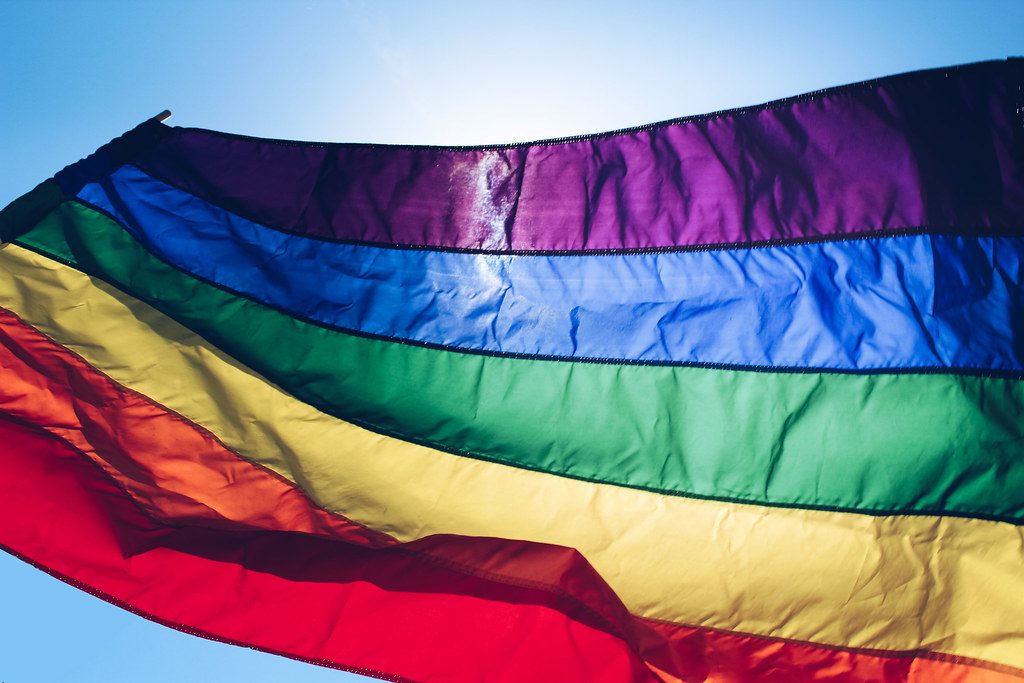[vc_row][vc_column][vc_column_text]Dear Editor,
As proud members of the LGBTQ+ community, we know first-hand the vile abuse that regularly takes place online. The data is clear; 78% of us have faced anti-LGBTQ+ hate crime or hate speech online in the last 5 years.1 So we understand why the Government is looking for a solution, but the current version of the Online Safety Bill is not the answer – it will make things worse not better.
The new law introduces the “duty of care” principle and would give internet companies extensive powers to delete posts that may cause ‘harm.’ But because the law does not define what it means by ‘harm’ it could result in perfectly legal speech being removed from the web.2
As LGBTQ+ people we have seen what happens when vague rules are put in place to police speech. Marginalised voices are silenced. From historic examples of censors banning LGBTQ+ content to ‘protect’ the public, to modern day content moderation tools marking innocent LGBTQ+ content as explicit or harmful.
This isn’t scaremongering. In 2017, Tumblr’s content filtering system marked non-sexual LGBTQ+ content as explicit and blocked it, in 2020 TikTok censored depictions of homosexuality such as two men kissing or holding hands and it reduced the reach of LGBTQ+ posts in some countries, and within the last two months LinkedIn removed a coming out post from a 16-year-old following complaints.3
This Bill, as it stands, would provide a legal basis for this censorship. Moreover, its vague wording makes it easy for hate groups to put pressure on Silicon Valley tech companies to remove LGBTQ+ content and would set a worrying international standard.
Growing calls to end anonymity online also pose a danger. Anonymity allows LGBTQ+ people to share their experiences and sexuality while protecting their privacy and many non-binary and transgender people do not hold a form of acceptable ID and could be shut out of social media.4
The internet provides a crucial space for our community to share experiences and build relationships. 90% of LGBTQ+ young people say they can be themselves online and 96% say the internet has helped them understand more about their sexual orientation and/or gender identity.5 This Bill puts the content of these spaces at potential risk.
Racism, homophobia, transphobia, and threats of violence are already illegal. But data shows that when they happen online it is ignored by authorities. After the system for flagging online hate crime was underused by the police, the Home Office stopped including these figures in their annual report all together, leaving us in the dark about the scale of the problem. The government’s Bill should focus on this illegal content rather than empowering the censorship of legal speech.
This is why we are calling for “the duty of care”, which in the current form of the Online Safety Bill could be used to censor perfectly legal free speech, to be reframed to focus on illegal content, for there to be specific, written, protections for legal LGBTQ+ content online, and for the LGBTQ+ community to be properly consulted throughout the process.
Stephen Fry, actor, broadcaster, comedian, director, and writer.
Munroe Bergdorf, model, activist, and writer.
Peter Tatchell, human rights campaigner.
Carrie Lyell, Editor-in-Chief of DIVA Magazine.
James Ball, Global Editor of The Bureau Of Investigative Journalism.
Jo Corrall, Founder of This is a Vulva.
Clara Barker, material scientist and Chair of LGBT+ Advisory Group at Oxford University.
Marc Thompson, Director of The Love Tank and co-founder of PrEPster and BlackOut UK.
Sade Giliberti, TV presenter, actor, and media personality.
Fox Fisher, artist, author, filmmaker, and LGBTQIA+ rights advocate.
Cara English, Head of Public Engagement at Gendered Intelligence, Founder OpenLavs.
Paula Akpan, journalist, and founder of Black Queer Travel Guide.
Tom Rasmussen, writer, singer, and drag performer.
Jamie Wareham, LGBTQ journalist and host of the #QueerAF podcast.
Crystal Lubrikunt, international drag performer, host, and producer.
David Robson, Chair of London LGBT+ Forums Network
Shane ShayShay Konno, drag performer, curator and host of the ShayShay Show, and founder of The Bitten Peach.
UK Black Pride, Europe’s largest celebration for African, Asian, Middle Eastern, Latin America, and Caribbean-heritage LGBTQI+ people.
Footnotes
(1) Hubbard, L. (2020) Online Hate Crime Report: Challenging online homophobia, biphobia and transphobia. Galop, the LGBT+ anti-violence charity.
(2) House of Lords Digital and Communications Committee. (2021) Free for all? Freedom of expression in the digital age. First Report of Session 2021-22, 22 July.
(3) See:
Bacchi, U. (2020) TikTok apologises for censoring LGBT+ content. Reuters, 22 September.
Bell, K. (2017) Why Tumblr’s new ‘safe mode’ is a bigger deal than you think. Mashable, 22 June.
Silva, C. (2021) Top social media platforms ‘unsafe’ for LGBTQ users, report finds. NBC News, 11 May.
Williams, T. (2021) Brave teen came out to classmates by coming out in a dress for his prom. Metro, 28 June.
(4) Van Der Werff, E. (2020) Trans Twitter and the beauty of online anonymity. Vox, 23 September 2020.
(5) Stonewall. (2017) Stonewall School Report 2017
[/vc_column_text][/vc_column][/vc_row]






